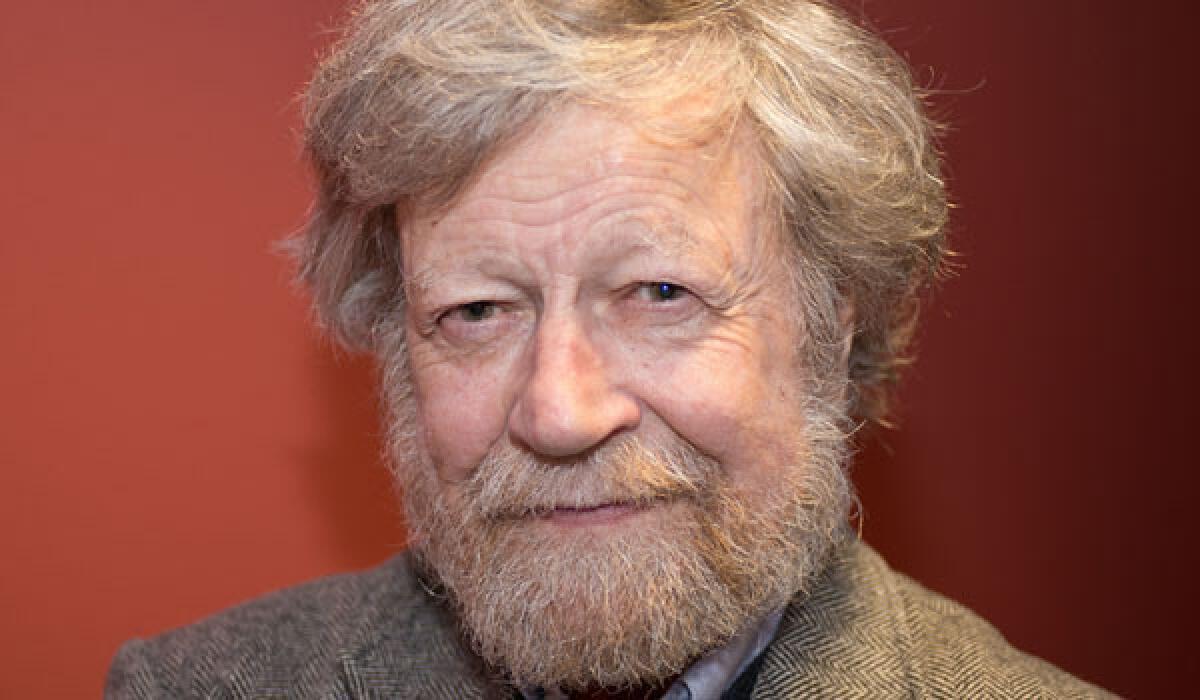Music review: L.A. Master Chorale pays tribute to Morten Lauridsen

- Share via
In December 1994, the Los Angeles Master Chorale presented the world premiere of a brief setting of the Latin chant “O Magnum Mysterium” by a little-known 51-year-old USC-based composer from the Pacific Northwest named Morten Lauridsen.
Paul Salamunovich, then the Master Chorale’s music director, promptly predicted that this six-minute motet would eclipse all other settings of that text.
Incredibly enough, it did -- yet Salamunovich’s bold proclamation turned out to be an understatement. Choral groups all over the world rushed to perform the piece; the sheet music became the Theodore Presser Company’s biggest seller. A look at ArkivMusic.com reveals that “O Magnum Mysterium” can be found on at least 68 different CDs.
PHOTOS: Faces to watch 2014 | Classical music
Lauridsen’s reputation soared, for he had tapped into a yearning in his audience for radiant, melodic yet serious, contemporary choral music with genuine depth.
So as part of the Master Chorale’s ongoing 50th anniversary season, the ensemble’s former composer-in-residence received an extravagant gesture that rarely comes to any living composer -- an evening-long survey of his output, and only his output, Sunday night. This proved to be hardly a risk at all for the box office; Walt Disney Concert Hall was sold out weeks in advance.
The survey revealed that there is considerably more variety within Lauridsen’s style than his “greatest hit” would indicate, and that he can make the listener feel the occasional pain within his texts while still maintaining an overall vision of calm.
You can hear an early Copland influence in the odd-numbered movements of “Mid-Winter Songs,” and Bernstein-like syncopations in the even-numbered ones. “Canticle / O Vos Omnes” frames a medieval chant for female voices with angular, outright avant-garde clarinet solos (played by Gary Bovyer).
In one section of “Madrigali: Six Fire Songs on Italian Renaissance Poems,” the words seem to pile on each other in accelerated rushes of syllables. Lauridsen manages to have it both ways simultaneously in the first song in “Nocturnes”; the voices are gentle and caressing while the piano part is edgier and dissonant, yet both elements somehow emerge unified.
PHOTOS: Best classical concerts of 2013 | Mark Swed
Grant Gershon led the Master Chorale with his usual attention to remarkably clear diction, unanimous ensemble, and pinpoint control of dynamic levels. The composer was there to participate as well, playing the piano parts in “Nocturnes” and the last song of “Les Chansons des Roses” in a plain, to-the-point manner.
Lauridsen also had a surprise for the audience near the end of the program. After reminiscing a bit about his early experiences listening to the Master Chorale back in the Roger Wagner era, Lauridsen introduced former National Endowment for the Arts Chairman Dana Gioia (now a colleague of his at USC), who recited his poem “Prayer,” followed by Lauridsen’s own choral setting of the text in an attractive, tuneful, almost popular-song style.
Inevitably, “O Magnum Mysterium” was the evening’s lingering, hushed capstone.
ALSO:
Review: For Kronos Quartet, a time of renewal on 40th birthday
Review: L.A. Opera’s ‘Lucia di Lammermoor’ sweeps away resistance
For Albina Shagimuratova, opera is a special kind of love and madness
More to Read
The biggest entertainment stories
Get our big stories about Hollywood, film, television, music, arts, culture and more right in your inbox as soon as they publish.
You may occasionally receive promotional content from the Los Angeles Times.










